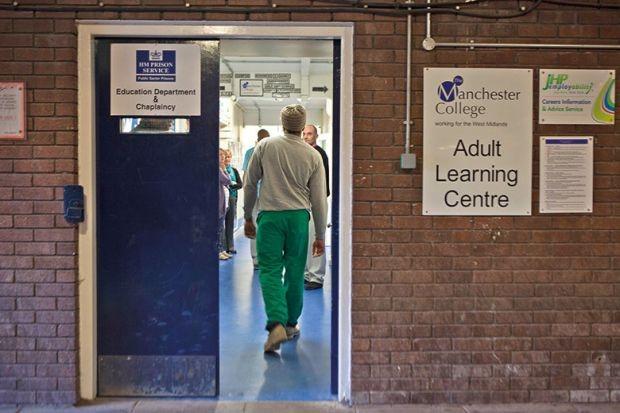
Submitted by Matt Skipper on Thu, 13/09/2018 - 11:34
The University of Cambridge is to launch its first bursaries for prisoners to study at the institution, under an initiative that could ultimately lead to degrees being delivered behind bars.
The four £5,000 bursaries, provided by Cambridge’s Institute of Continuing Education in partnership with the Longford Trust charity, will support serving or former prisoners to join other students on courses that involve spending 14 days at the institute.
Participants – who, if still serving time, will need to be in an open prison and have a day release licence – will study towards an undergraduate higher education certificate.
The project was developed with the Learning Together partnership, which supports the delivery of academic courses in prisons for a mix of students and inmates, but marks the first time that courses for prisoners will be delivered on a university campus.
Learning Together’s ultimate plan is to enable prisoners to gain a whole university degree when they are behind bars, said Amy Ludlow, co-director of the initiative and a senior research associate in Cambridge’s Institute of Criminology.
The goal is to create an accreditation framework that spans the Learning Together university-prison partnerships – of which there are 20 in the UK – so that “even if I am a prisoner in prison A and I move to prison B, I can carry on my studies and it can add up towards a degree or a qualification”, she said.
Dr Ludlow added that some of their partnerships do offer accreditation already, but only for about 20 credits. “That is lovely but it’s difficult to know how you can use that afterwards, especially if you still have a lot of your sentence left,” she said.
Ruth Armstrong, co-director of Learning Together and herself a senior research associate at the Institute of Criminology, said that providing routes into higher education for prisoners “have links with increased public safety and better future outcomes for everybody”.
“Our work is part of the broader agenda to make sure that we are giving opportunities [to] people to access world-leading education in ways that are inclusive, and to challenge some of the structural impediments that prevent people from accessing it,” Dr Armstrong said.
“We get people a long way down the line who have been failed by multiple organisations. We know that there is only so much that Cambridge can do, but it is a really positive example of the university trying to be proactive,” she said.
The Cambridge initiative was announced as the UPP Foundation made public a £20,000 pilot project to help get more people with criminal convictions into higher education. The charity Unlock will use the funding to work with Cardiff University, the University of Southampton and Goldsmiths, University of London, to develop best practice in admissions.
Dr Ludlow said that, while witnessing one participant in a Learning Together partnership who got a Cambridge bursary on leaving prison hug his son, it struck her “how it will expand the horizon of what is possible for his child. Suddenly that 10-year-old boy can say, ‘My dad has done this, he’s going to study at Cambridge’ – it changes an awful lot of things.”
Story by: Anna McKie, Times Higher Education
